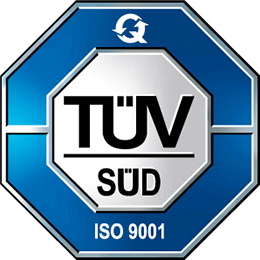REGISTRATIONS
ISO 9001 Quality management
ISO 9001 is the most widely used national and international standard for quality management.
This globally recognised standard defines the minimum requirements for a quality management system. The focus here is on optimising processes in order to continuously increase the performance of the company and to meet the requirements of the customers in the best possible way. A certificate attests to compliance with the ISO 9001 standard. Humintech GmbH, ISO 9001 Certifikate.

ECOCERT
Organic certification organization
ECOCERT is an organic certification organization, founded in France in 1991. It is based in Europe but conducts inspections in over 80 countries, making it one of the largest organic certification organizations in the world. ECOCERT primarily certifies food and food products, but also certifies cosmetics, detergents, perfumes, and textiles. The company inspects about 70% of the organic food industry in France and about 30% worldwide. https://www.ecocert.com/en
FiBL
Research Institute for Organic Agriculture
FiBL- is one of the world's leading research institutions for organic agriculture with locations in Switzerland, Germany and Austria. FiBL pursues an interdisciplinary approach and works closely with farmers and the food industry to make solution-oriented development projects and a rapid transfer of knowledge possible. https://www.betriebsmittelliste.de/en/home.html
BCS Öko-Garantie
Certification of organic products
Good agricultural practice and the ecologically sustainable production of crops and rearing of animals will ensure your long-term success. Just as consumer demands for higher-quality foodstuffs and for greater availability are set to increase across the world, so too will the need for a conscientious approach to our natural resources. https://www.kiwa.com/en/
REACH
Registration, Evaluation, Authorisation and Restriction of Chemicals
Behind the abbreviation REACH is an EU chemicals ordinance, which entered into force on 1 July 2017. REACH stands for Registration, Evaluation, Authorization and Restriction of Chemicals. It applies to all chemical substances that are produced in the EU or imported into the EU in quantities of one tonne per year. https://echa.europa.eu/regulations/reach/understanding-reach
OMRI
Organic Materials Review Institute
It is a non-governmental organization for the testing of organic raw materials used in the production of organic or biological goods. In order to use the OMRI label, producers have to demonstrate compliance with strict OMRI standards. https://www.omri.org/


